★★★½
“So how do they go to the bathroom?”
 This is is a very small-scale bit of science fiction, with barely a handful of speaking parts, and mostly taking part in a single room. Despite this, and some qualms about the use of cinematically convenient amnesia, it works rather well. Eileen (Mitich) wakes to find herself in a room without windows or doors. A disembodied voice (LeBlanc) tells her to move a pencil on the table. She does and is knocked out. Regaining consciousness, the voice repeats the instruction. Except, Eileen is now chained to her chair. And if she doesn’t complete the test quickly enough, Eileen is informed her daugher, Eve (Loiselle) will be killed. OK, the movie has my attention.
This is is a very small-scale bit of science fiction, with barely a handful of speaking parts, and mostly taking part in a single room. Despite this, and some qualms about the use of cinematically convenient amnesia, it works rather well. Eileen (Mitich) wakes to find herself in a room without windows or doors. A disembodied voice (LeBlanc) tells her to move a pencil on the table. She does and is knocked out. Regaining consciousness, the voice repeats the instruction. Except, Eileen is now chained to her chair. And if she doesn’t complete the test quickly enough, Eileen is informed her daugher, Eve (Loiselle) will be killed. OK, the movie has my attention.
Turns out, Eileen has psychokinetic skills, the ability to move things with her mind. The tests are an escalating series of experiments, designed to force this talent up from her subconscious, to the point where she can control it. Part of the process involves adding her husband, Roger (Tchortov) into the room. Though they’re clearly in there for a lengthy period, leading Chris to pose the question at the top of this review. No answer is ever obtained, and that’s probably the film’s biggest weakness. Not specifically the toilet question, just a tendency to handwave its way past issues. The way Eileen’s lost memories return at the pace needed by the script is also a bit weak, though the validity of these is questionable.
Despite these weaknesses, there’s a lot here that is done right. The positives begin with Mitich, who hits all the points in a fine performance. She shifts from sympathetic through to scary, as the strength of her abilities becomes apparent, then back to poignant when we discover – albeit through that cinematic amnesia – the truth about her situation. Inevitably (and this is kinda obvious, so barely counts as any kind of a spoiler), the decision to torment someone with paranormal talents ends up with Eileen using them against her captors. This is done mostly in an extended sequence where she walks through the complex at a sedate pace, absolutely unstoppable. The effects are more restrained than, say, Marvel or DC, yet are certainly up to the task.
Despite the cover, I don’t remember Eileen actually holding a gun at any point. Not with her hands: one of the trials does involve her assembling a pistol from its component parts, purely with her mind (below). Admittedly, she doesn’t need a physical weapon: the telekinetic abilities she has pose more than enough threat. In hindsight, she does go for more spectacular methods of dispatch than necessary: a simple squeeze of the heart would suffice. However, I’m happy to err on the side of style over substance, and by this point, I was sufficiently invested in Eileen’s past, present and future to buy into whatever might happen. If there’s similarity to another slice of Canadian SF, Cube, the better-defined plot here means it’s something I’m prepared to tolerate.
Dir: James Mark
Star: Sara Mitich, George Tchortov, Evie Loiselle, Karen LeBlanc





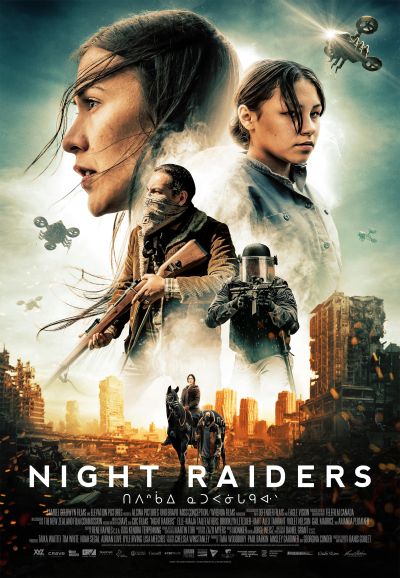 This rather gloomy slice of social science-fiction seems to take place in a post-apocalyptic version of Canada, albeit a fairly low-key apocalypse. It seems to have led to a rigidly class-based system, with a sharp division between “citizens” and the rest. That leaves the indigenous population on the outside, scrabbling hard to survive and avoid having their kids “re-educated” in military-style academies. [This pointedly echoes
This rather gloomy slice of social science-fiction seems to take place in a post-apocalyptic version of Canada, albeit a fairly low-key apocalypse. It seems to have led to a rigidly class-based system, with a sharp division between “citizens” and the rest. That leaves the indigenous population on the outside, scrabbling hard to survive and avoid having their kids “re-educated” in military-style academies. [This pointedly echoes 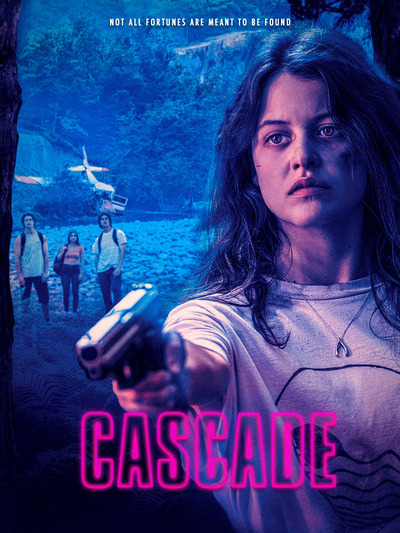 It’s kinda interesting to compare this to
It’s kinda interesting to compare this to 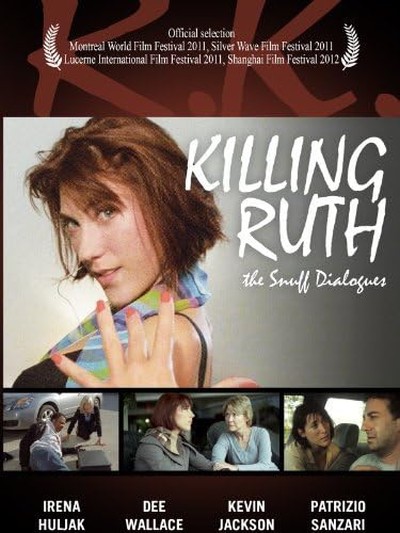 As soon as I saw the running time of this was one hundred and thirty-one minutes, it immediately went onto the back-burner. I have a busy life, and I’ve going to devote close to two and a quarter hours to a low-budget movie, it is going to be when I have a
As soon as I saw the running time of this was one hundred and thirty-one minutes, it immediately went onto the back-burner. I have a busy life, and I’ve going to devote close to two and a quarter hours to a low-budget movie, it is going to be when I have a  Mildred Moyer (Chamberlain) has a problem, and it’s as plain as the nose on her face. Actually, it
Mildred Moyer (Chamberlain) has a problem, and it’s as plain as the nose on her face. Actually, it 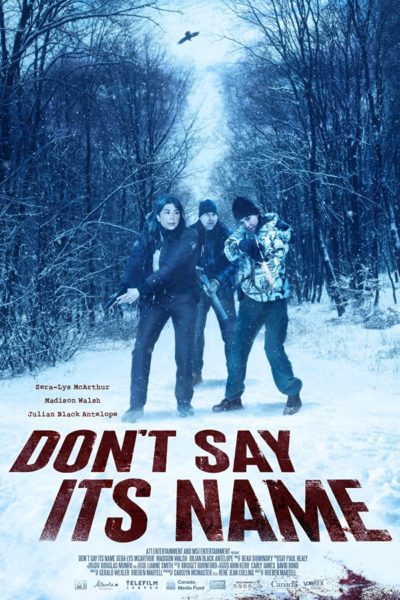 I was going to start this with a warning to try and avoid reading other reviews of this before watching it, because it felt as if, without exception, they all included spoilers for a significant plot-point, that wasn’t actually revealed until deep into the movie. Heck, the IMDb synopsis does it too. However, having sat through the entirety of this bland piece of indigenous folk pseudo-horror, all I can say is “Meh.” You do you: it’s probably not as if it’s going to have much impact, because it’s hard to spoil something which already smells past its best before date.
I was going to start this with a warning to try and avoid reading other reviews of this before watching it, because it felt as if, without exception, they all included spoilers for a significant plot-point, that wasn’t actually revealed until deep into the movie. Heck, the IMDb synopsis does it too. However, having sat through the entirety of this bland piece of indigenous folk pseudo-horror, all I can say is “Meh.” You do you: it’s probably not as if it’s going to have much impact, because it’s hard to spoil something which already smells past its best before date. When I reviewed Russian fencing film
When I reviewed Russian fencing film 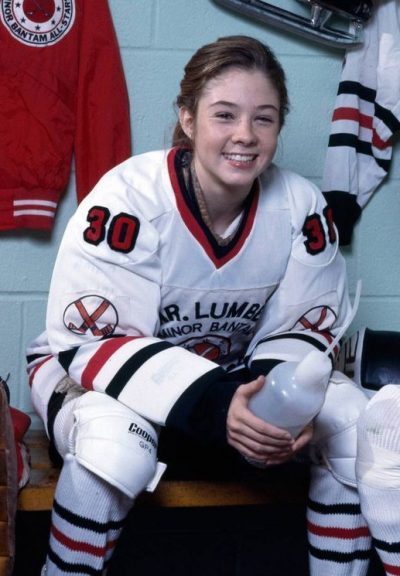
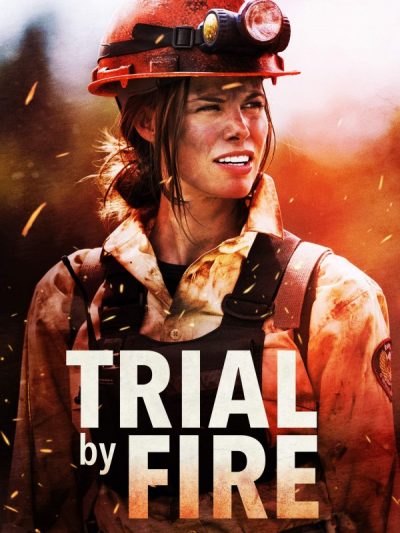
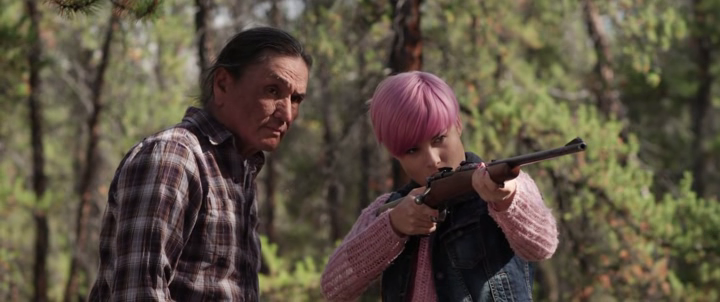 While certainly more relaxed that many of the films we cover here, this makes it in on the strength of its heroine’s character arc. That belongs to Lia (Jacobs), a teenage girl in the Northwest Territories of Canada, who is being raised by her father. When he has to go off for work, she gets sent north of the Arctic Circle to live with her grandmother (Jerome) for the nightless summer. She hates the rural life, and runs away, stealing a boat in the hope of reaching Dawson City, the nearest big town – not realizing it would be four weeks journey. She falls overboard after her boat breaks down, and is lucky to be rescued by Alfred (Howard), a hunter from the local Gwich’in tribe. As they cross the remote wilderness, she begins to appreciate it, bonding with the thoroughly down-to-earth Alfred and learning from him – wolves hate the smell of tobacco, apparently. But when an accident befalls her guide, Lia is going to have to dig into her own resources.
While certainly more relaxed that many of the films we cover here, this makes it in on the strength of its heroine’s character arc. That belongs to Lia (Jacobs), a teenage girl in the Northwest Territories of Canada, who is being raised by her father. When he has to go off for work, she gets sent north of the Arctic Circle to live with her grandmother (Jerome) for the nightless summer. She hates the rural life, and runs away, stealing a boat in the hope of reaching Dawson City, the nearest big town – not realizing it would be four weeks journey. She falls overboard after her boat breaks down, and is lucky to be rescued by Alfred (Howard), a hunter from the local Gwich’in tribe. As they cross the remote wilderness, she begins to appreciate it, bonding with the thoroughly down-to-earth Alfred and learning from him – wolves hate the smell of tobacco, apparently. But when an accident befalls her guide, Lia is going to have to dig into her own resources.